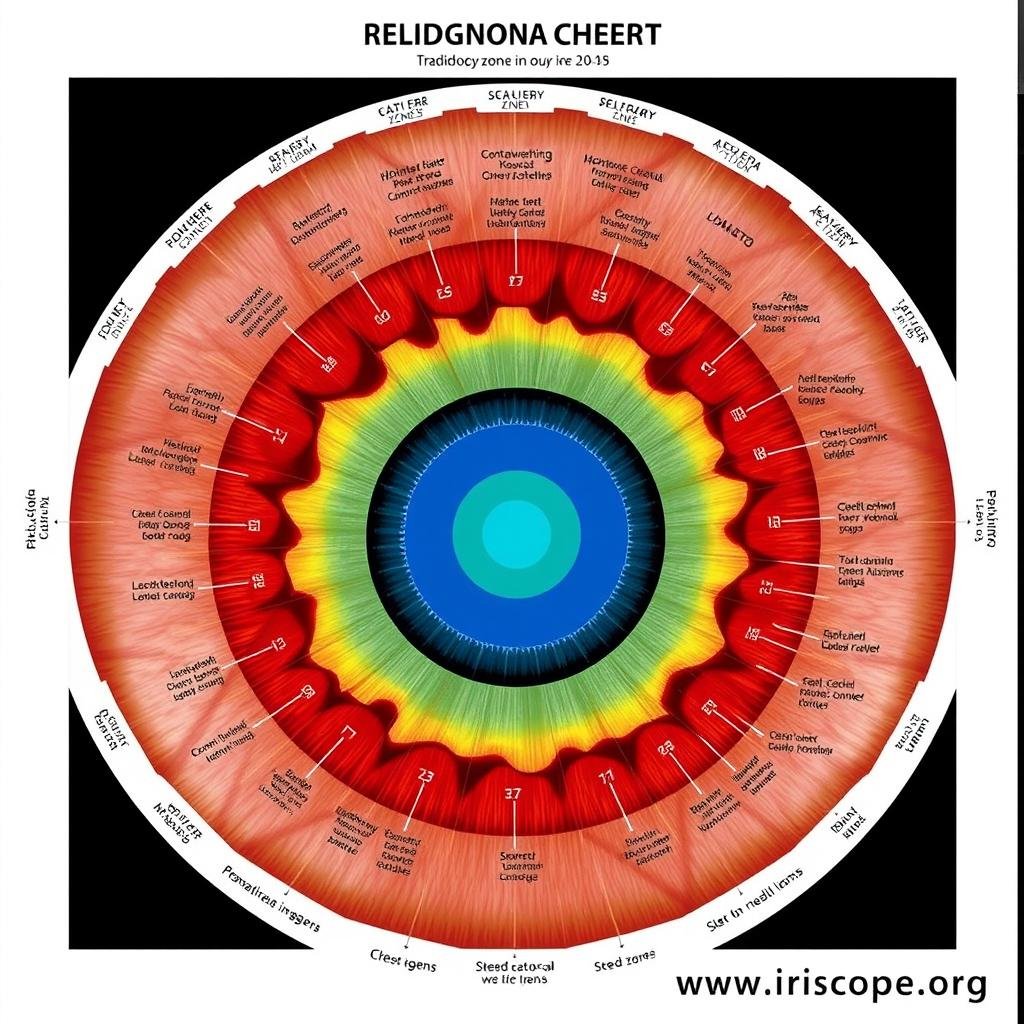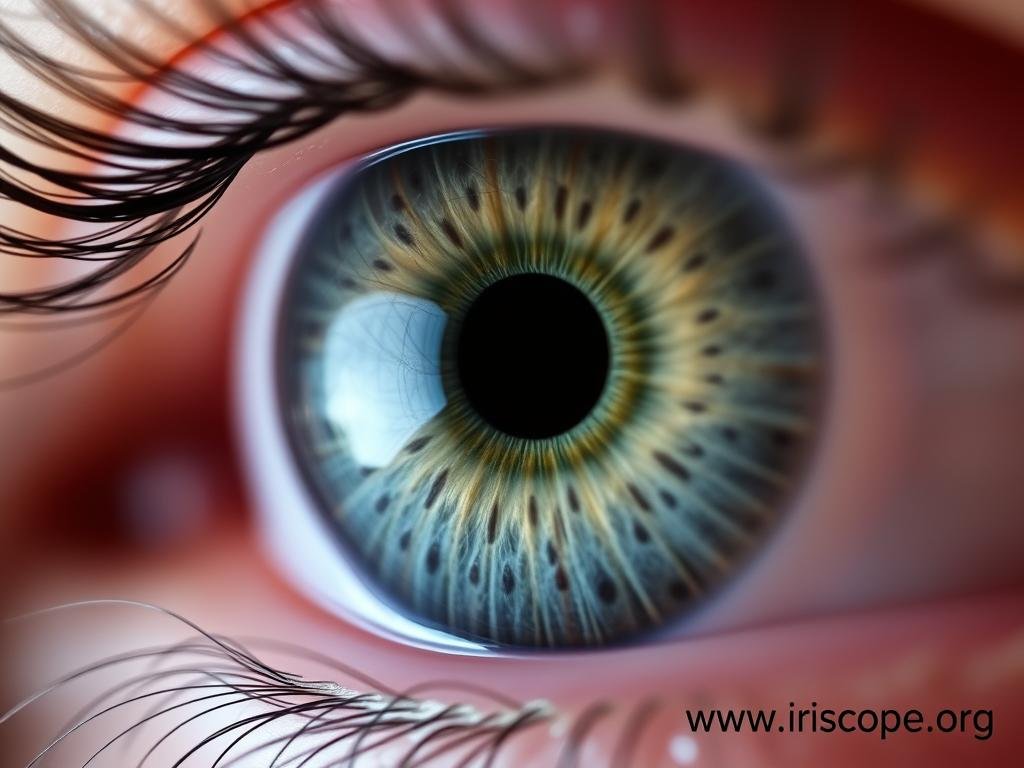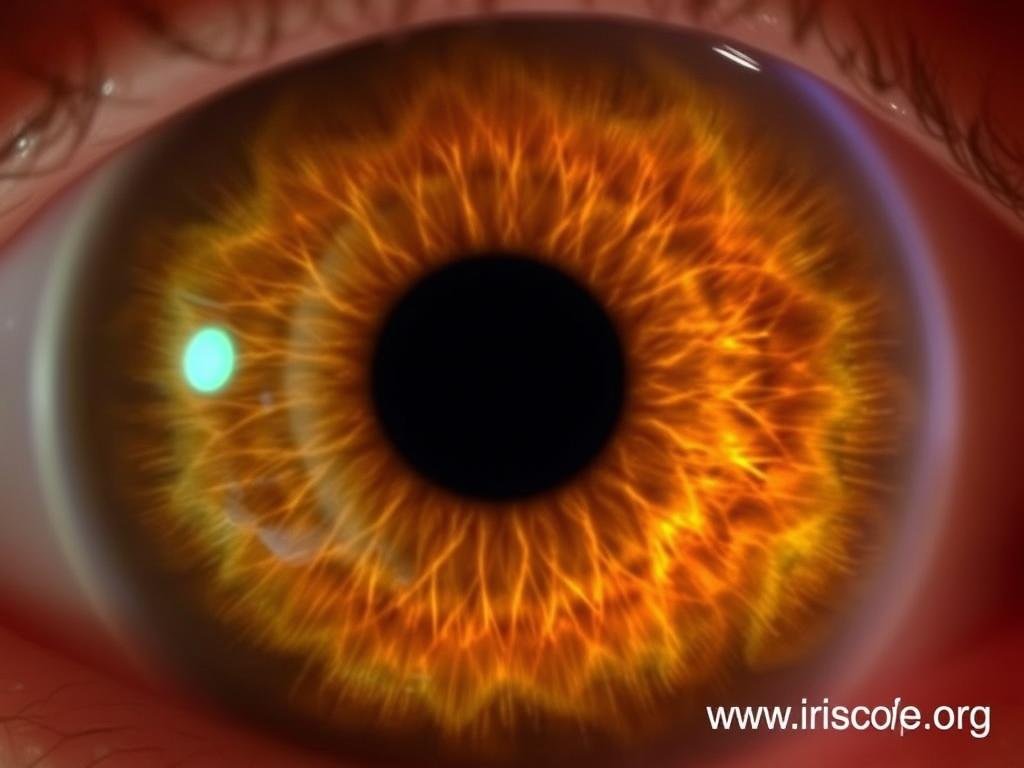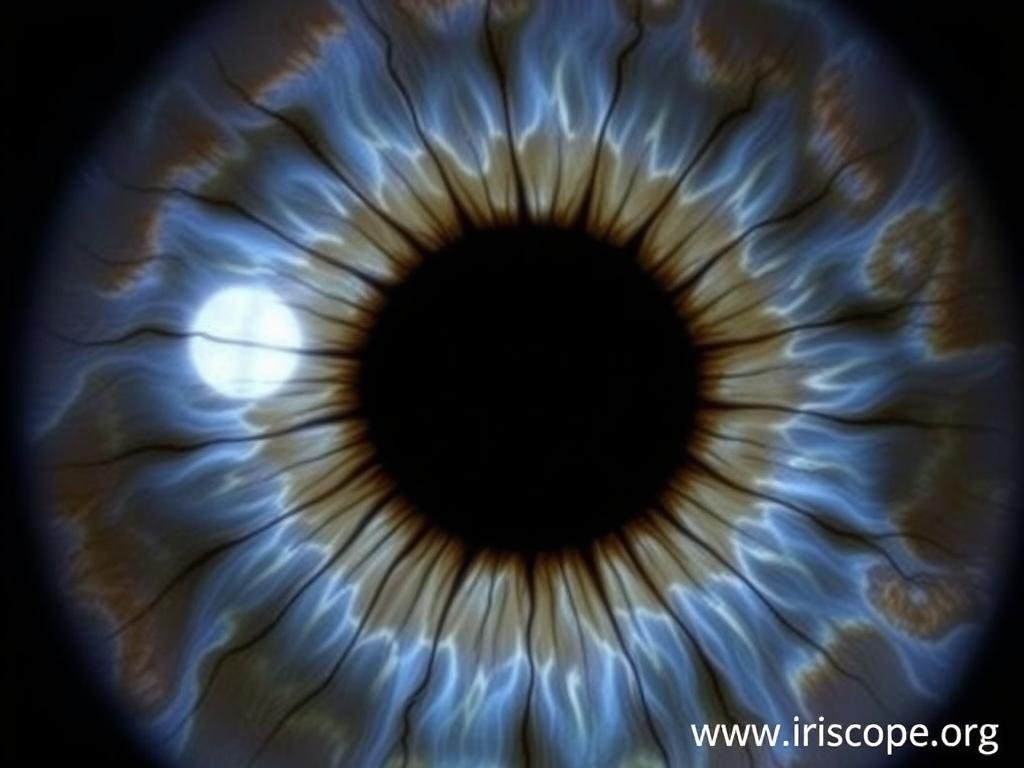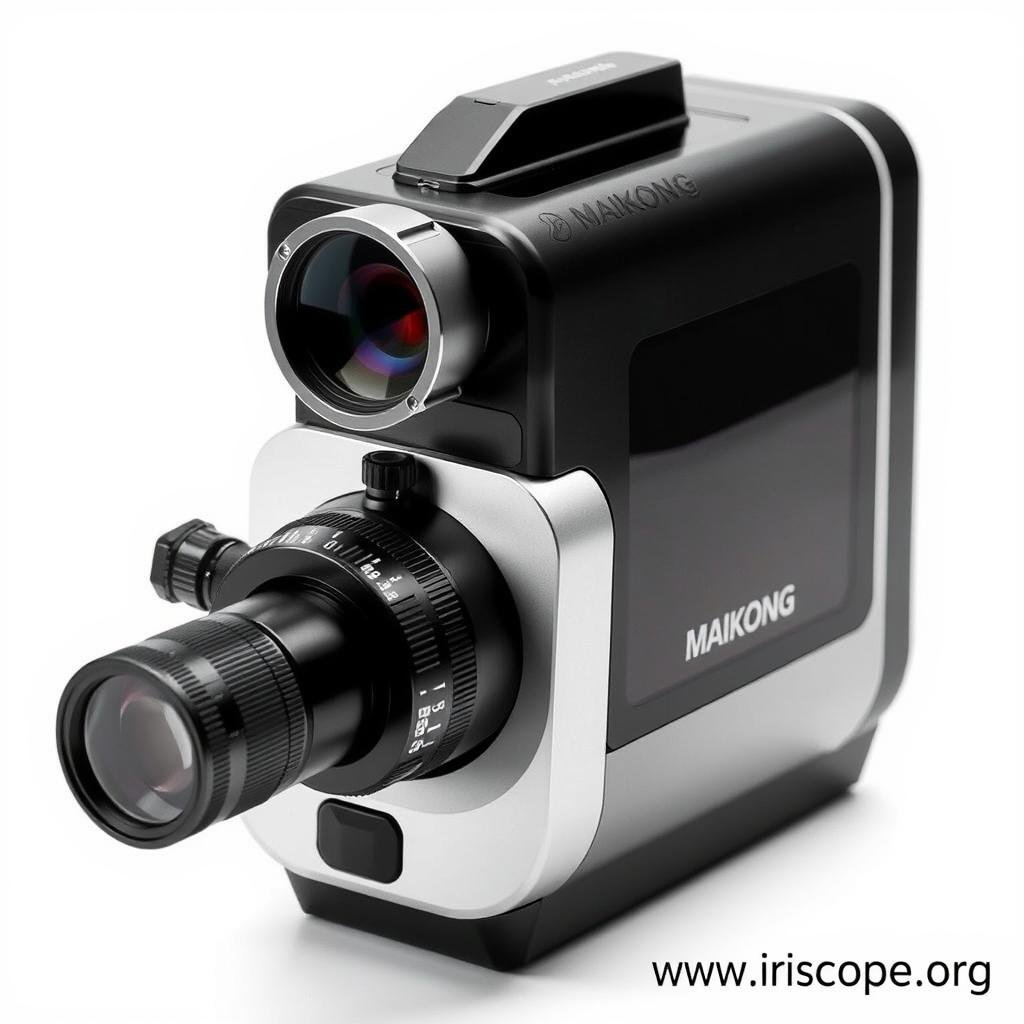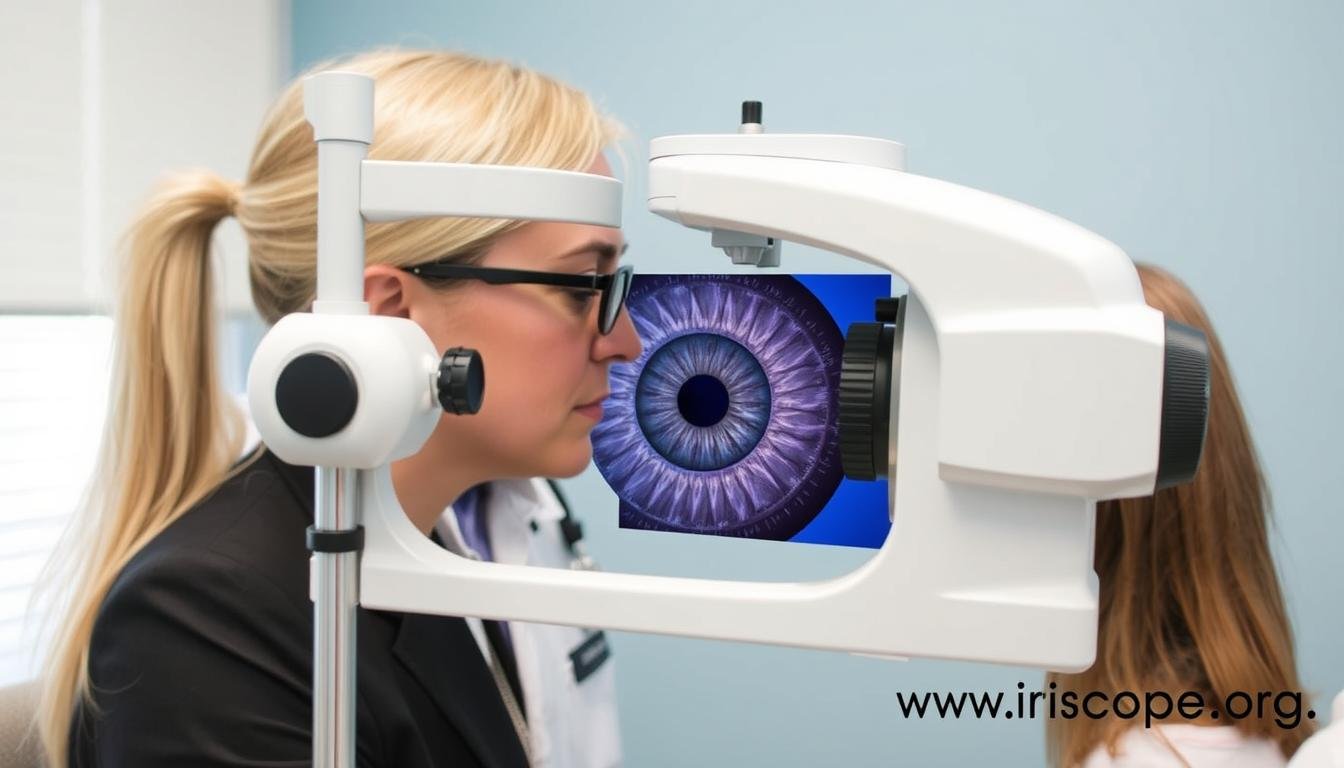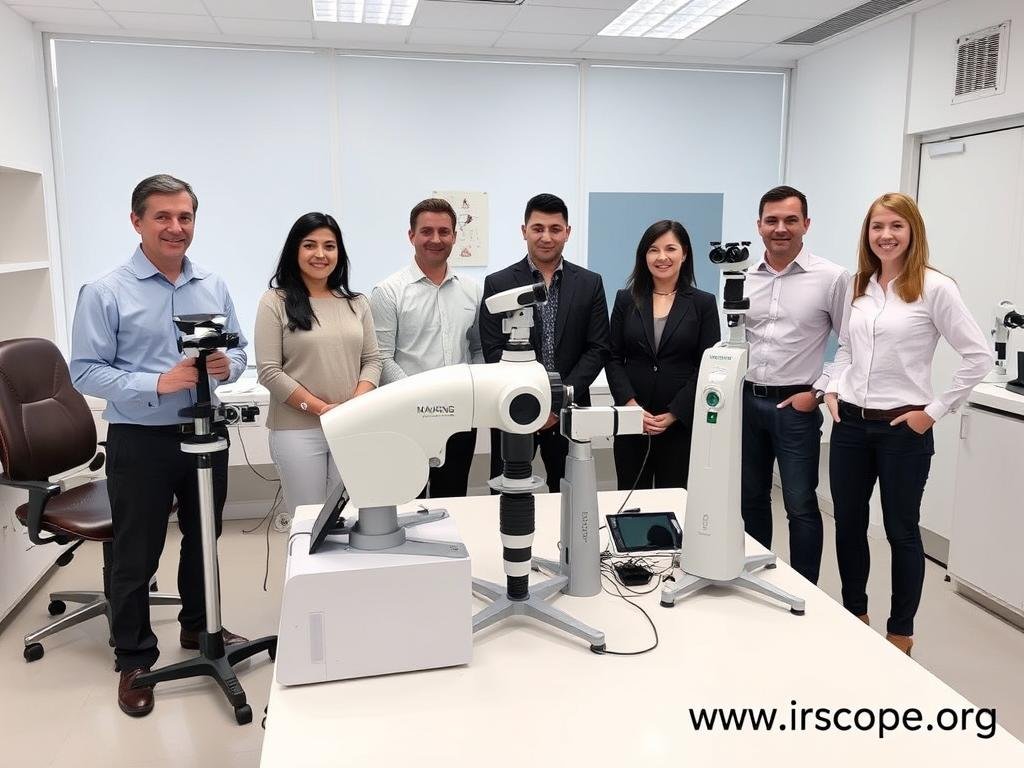The human iris contains over 20,000 nerve endings connected to various organs and systems throughout the body. This intricate connection has led many practitioners to believe that iridology – the study of the iris patterns and colors – can reveal not just physical health conditions but emotional imbalances as well. As we explore this fascinating field, we’ll examine both the historical foundations and modern applications of iridology in detecting emotional states, while addressing the scientific perspectives that both support and question these practices.سمجھڻ Iridology and Its Historical Foundations

Detailed iris structure reveals patterns examined in iridology analysis. www.iriscope.org
Iridology is the study of the iris, the colored part of the eye, to detect information about a person’s health status. Practitioners believe that each area of the iris corresponds to different organs and systems in the body, with changes in these areas potentially indicating imbalances or health issues in the corresponding body parts.
The history of iridology traces back to the 19th century when Hungarian physician Ignaz von Peczely first documented his observations. After noticing changes in an owl’s iris following a leg injury, von Peczely developed the first iris chart mapping different regions of the iris to specific organs and body systems. This foundational work was later expanded by Swedish homeopath Nils Liljequist and American chiropractor Bernard Jensen in the 20th century.
جي ارتقا Iridology Charts and Mapping
جديد iridology charts divide the iris into approximately 60 zones, each corresponding to different parts of the human body. These detailed maps serve as essential tools for practitioners to interpret the various markings, colors, and patterns observed in the iris. The right iris is generally associated with the right side of the body, while the left iris corresponds to the left side.
Over decades of research and clinical observation, these charts have been refined to include not just physical organs but also emotional and psychological aspects. This evolution has expanded iridology’s application beyond physical diagnosis to include the assessment of emotional states and imbalances.
The Connection Between Iridology and Emotional Health
The relationship between our emotions and physical health has been recognized across many healing traditions. In iridology, this mind-body connection is observed through specific patterns and colorations in the iris that may correspond to emotional states.
ڪئين Iridology May Reveal Emotional Patterns
According to iridology theory, emotional imbalances can manifest in the iris through several indicators:
- Nerve rings: Circular lines in the iris that may indicate stress, anxiety, or nervous tension
- Color variations: Changes in iris pigmentation potentially reflecting emotional states
- Structural features: Specific markings that correspond to the brain and nervous system
- Pupil abnormalities: Irregularities in pupil shape or responsiveness that might indicate emotional stress
- Lymphatic rosary: A ring around the outer edge of the iris that may show emotional congestion

Nerve rings visible in the iris may indicate chronic stress patterns. www.iriscope.org
Practitioners trained in emotional iridology look for these specific signs to help identify potential emotional imbalances that may be affecting a person’s overall wellbeing. While conventional medicine may not recognize these connections, many holistic health practitioners have observed correlations between these iris signs and emotional states in their clinical practice.
Scientific Perspectives on Iridology and Emotional Assessment
The scientific community has varying views on iridology’s efficacy, particularly regarding emotional assessment. While some studies have questioned the reliability of iridology as a diagnostic tool, others suggest there may be merit to certain aspects of iris analysis.
ثبوت ثبوت
- ارسس هڪ هزارين اعصاب ختم ٿيڻ واري دماغ سان جڙيل اعصاب جي ذريعي ڳن connected يل آهي
- Autonomic nervous system responses can affect iris appearance
- Some practitioners report consistent patterns observed in clinical settings
- Emerging research in psychoneuroimmunology supports mind-body connections
حدون ۽ تنقيد
- Limited peer-reviewed research specifically on emotional iridology
- Difficulty in standardizing observations and interpretations
- Potential for confirmation bias in readings
- Conventional medical community generally does not recognize as diagnostic
It’s important to note that while iridology may not be accepted as a definitive diagnostic tool in conventional medicine, many practitioners use it as part of a holistic assessment approach. The value may lie in its ability to identify patterns and tendencies rather than specific diagnoses.
“The eyes are not just organs of sight but windows to our internal state. While the scientific validation of iridology continues to evolve, the intricate connection between our nervous system and iris structure suggests potential for meaningful insights into both physical and emotional health.”
– Dr. James Chen, Integrative Medicine Researcher
Key Emotional Markers in Iridology تجز مبارڪ
Practitioners of emotional iridology have identified several specific markers that may indicate various emotional states and imbalances. These markers are observed through careful examination of the iris using specialized equipment.
| آئيس فيچر | جڳھ | Potential Emotional Indication |
| Nerve Rings (Stress Rings) | Concentric circles throughout iris | Chronic anxiety, nervous tension, inability to relax |
| ريڊيل فروز | Brain/mind region (top of iris) | Mental fatigue, overthinking, cognitive stress |
| Lymphatic Rosary | آئيس جو ٻاهرين ڪنڊ | Emotional congestion, difficulty processing feelings |
| اسڪرف رم | Outermost edge of iris | Boundary issues, emotional sensitivity to environment |
| Contraction Furrows | Around pupil | Internalized stress, emotional constriction |
| رنگ جون تبديليون | آئرس ۾ | Varying emotional states based on location and color |
These markers are typically examined using professional iridology equipment such as an iriscope or specialized iridology camera that can capture high-resolution images of the iris for detailed analysis.
Professional Iridology Equipment for Accurate Analysis
MAIKONG’s advanced iridology cameras and software provide the precision needed for detailed emotional pattern recognition. With 20+ years of R&D experience, our equipment offers unmatched clarity and analytical capabilities.
Explore Our Professional Equipment
Case Studies: Emotional Imbalances Detected Through Iridology
While individual experiences vary, many practitioners have documented cases where iridology analysis has revealed emotional patterns later confirmed through other assessment methods. These case studies provide practical context for understanding how iris analysis may contribute to emotional health assessment.
Case Study 1: Chronic Anxiety Identification
A 42-year-old female client showed prominent nerve rings throughout both irises during routine analysis. The practitioner noted these as potential indicators of chronic anxiety, despite the client not initially reporting anxiety symptoms. Further discussion revealed long-term stress the client had “normalized” and wasn’t consciously addressing. Targeted stress management techniques were recommended alongside referral to a mental health professional.

Prominent nerve rings visible using MAIKONG iridology camera. www.iriscope.org
Case Study 2: Emotional Trauma Indicators
A 35-year-old male showed distinct radial furrows in the brain/mind region of the iris, along with color changes suggesting potential emotional trauma. The practitioner discussed these findings, which led to the client acknowledging unresolved grief from a significant loss three years prior. This discovery prompted the client to seek appropriate emotional support through counseling.

Radial furrows captured with precision using MAIKONG iridology equipment. www.iriscope.org
These cases illustrate how iridology may serve as one component of a comprehensive approach to emotional health assessment. When used alongside other evaluation methods and with appropriate professional follow-up, iris analysis can provide additional insights into emotional patterns that might otherwise remain unaddressed.
پروفيشنل Iridology Equipment for Emotional Assessment
Accurate emotional assessment through iridology requires high-quality equipment that can capture the subtle details and patterns in the iris. Professional practitioners rely on specialized tools that provide clear, detailed images for analysis.

MAIKONG Professional Iriscope. www.iriscope.org
پروفيشنل Iriscope
High-resolution optical system designed specifically for iris examination, providing detailed views of iris structures and patterns related to emotional states.

MAIKONG Iridology Camera. www.iriscope.org
Iridology ڪئميرا
Specialized digital camera system with macro capabilities and controlled lighting to capture high-definition images of the iris for detailed emotional pattern analysis.

MAIKONG Iridology Software. www.iriscope.org
ارڊولوجي سافٽ ويئر
Advanced analytical software that helps identify and interpret emotional markers in the iris, with specialized modules for emotional pattern recognition.
MAIKONG: 20+ Years of Excellence in Iridology Equipment
As industry leaders with over two decades of research and development experience, MAIKONG provides the most advanced iridology equipment available. Our professional-grade iriscopes, cameras, and software are trusted by practitioners worldwide for their precision, reliability, and innovative features.
Contact us today to discuss your professional iridology equipment needs or request a product demonstration.
Connect on WhatsApp
Practitioner Approach to Emotional Iridology
Professional practitioners approach emotional iridology as part of a holistic assessment process, integrating iris analysis with other evaluation methods to gain a comprehensive understanding of a client’s emotional health.
Integrating Iridology into Holistic Practice
- Initial Consultation: Gathering client history, including emotional health concerns and experiences
- Iris Photography: Capturing high-resolution images of both irises using professional equipment
- Systematic Analysis: Examining iris structures, colors, and patterns with particular attention to emotional markers
- Correlation: Connecting observed iris signs with client-reported emotional experiences
- مجموعي تشخيص: Integrating iris findings with other assessment methods
- Recommendations: Developing personalized suggestions that may include lifestyle modifications, stress management techniques, or referrals to appropriate specialists
- Follow-up: Monitoring changes in iris patterns over time as emotional health evolves

Professional practitioner using MAIKONG equipment for detailed iris analysis. www.iriscope.org
Important Note: Emotional iridology is best used as a complementary assessment tool rather than a standalone diagnostic method. Practitioners should always work within their scope of practice and refer clients to appropriate mental health professionals when necessary.
The Future of Emotional Iridology: Bridging Traditional Wisdom with Modern Technology
As interest in holistic health approaches continues to grow, the field of emotional iridology stands at an interesting intersection of traditional observation and modern technology. While scientific validation continues to evolve, many practitioners find value in iris analysis as one component of a comprehensive approach to emotional health assessment.
MAIKONG remains committed to advancing the field through ongoing research, development of cutting-edge equipment, and support for practitioners worldwide. Our 20+ years of experience in the industry has positioned us as leaders in providing the tools needed for accurate, detailed iris analysis.
Whether you’re an established practitioner looking to upgrade your equipment or new to the field and exploring its possibilities, MAIKONG offers the professional-grade iriscopes, iridology cameras, and specialized software needed to conduct thorough emotional pattern analysis through iridology.
MAIKONG سان پنهنجي Iridology جي مشق کي وڌايو
Discover how our professional equipment can enhance your ability to identify emotional patterns through iris analysis. Contact us today to learn more about our products and how they can benefit your practice.
اڄ اسان سان رابطو ڪريو




